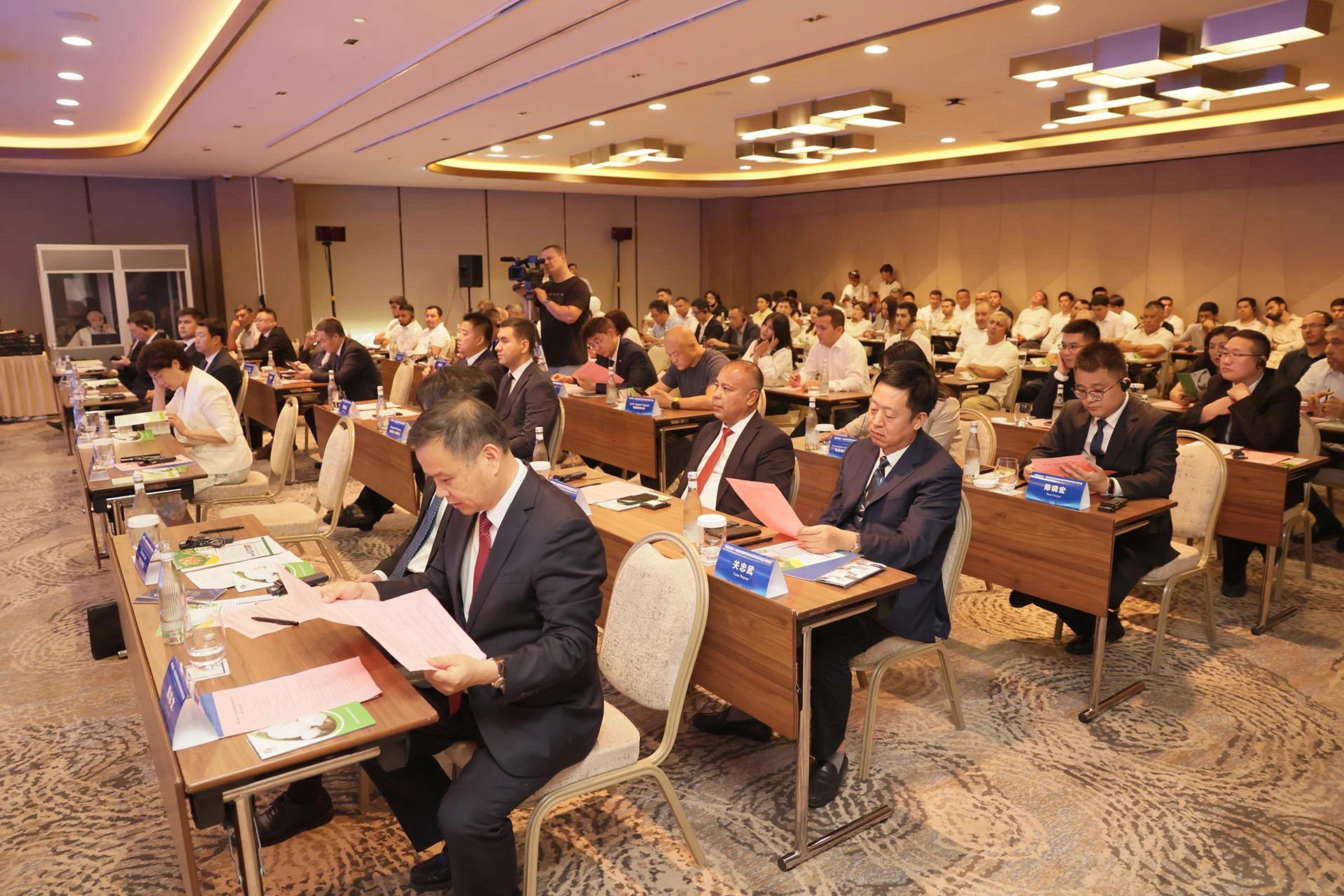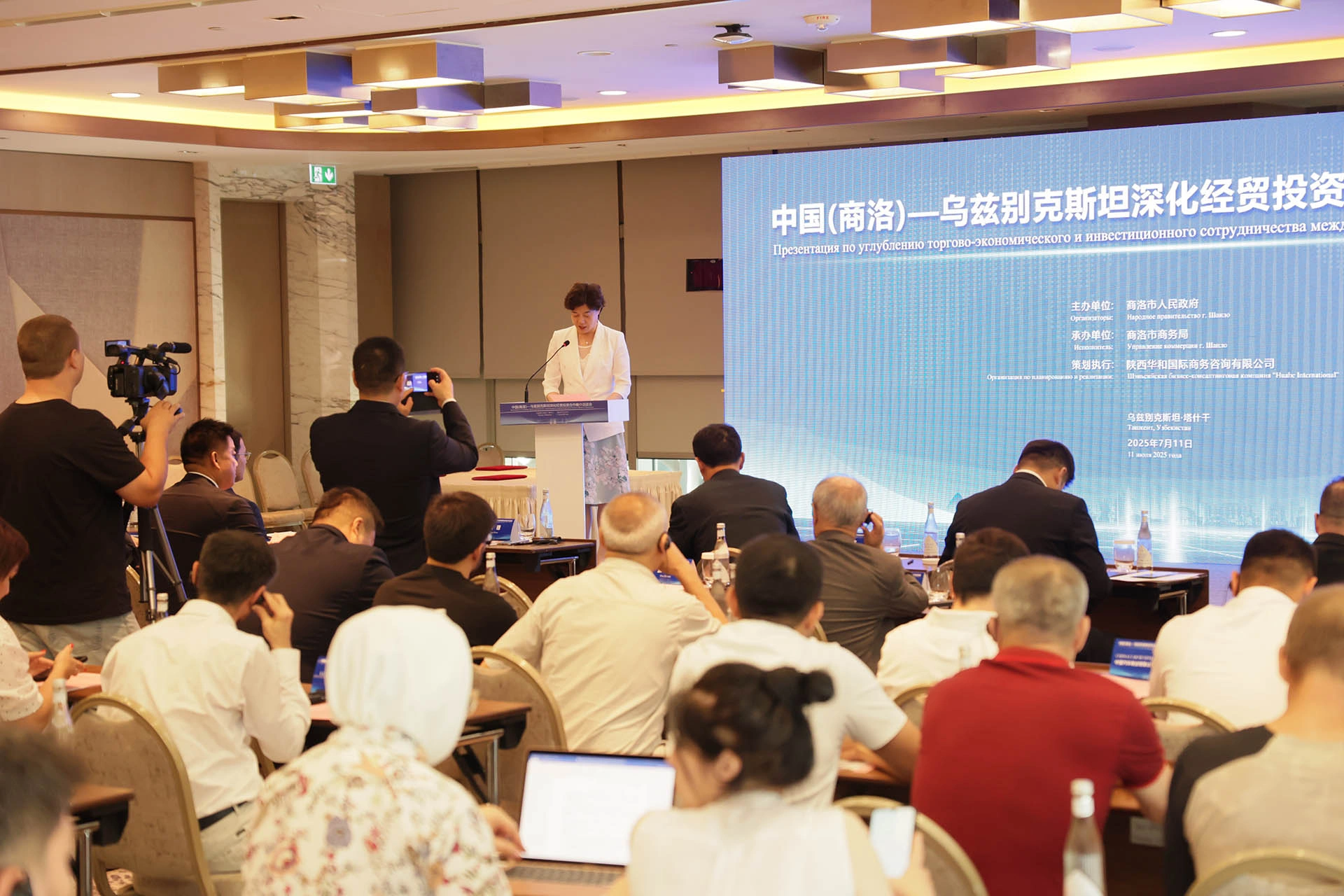ABA Uzbekistan at the forum "China (Shanluo) - Uzbekistan: deepening trade, economic and institutional cooperation"
16.07.2025

ABA Uzbekistan at the forum “China (Shangluo City) - Uzbekistan: deepening trade, economic and institutional cooperation”
On July 11, 2025, the Hilton Tashkent City hosted the investment forum “China (Shangluo City) - Uzbekistan: deepening trade, economic and institutional cooperation”. Shukhrat Yusupov, Chairman of the Automobile Business Association of Uzbekistan, spoke at the forum, in which he spoke about significant changes in the country's automotive sector and invited Chinese companies to deepen cooperation, especially in the field of auto component production.

An updated and growing automotive landscape
Shukhrat Yusupov presented the Automobile Business Association of Uzbekistan (ABA Uzbekistan) - a non-governmental non-profit organization uniting private enterprises of the automobile industry of Uzbekistan, including manufacturers, suppliers of components, dealers and importers. He emphasized that the reforms of the last 7-8 years have created a private sector in the country's automotive industry.
There are currently seven companies operating in the industry with a combined production capacity of over 500,000 vehicles per year. In 2025, the industry expects sales to reach approximately half a million units. This is in line with recent reports of rapid growth in the sector, which produced over 424.8 thousand vehicles in 2024. The automotive sector currently accounts for a significant portion of Uzbekistan's industrial output.
Key Players in Uzbekistan's Automotive Industry
The largest automaker in the country is UzAuto Motors, a state-owned company that produces vehicles based on General Motors (GM) platforms. Previously a joint venture with Daewoo and then GM, the company is now wholly owned by the Uzbek government.
The second largest and first privately-owned automobile plant in Uzbekistan is ADM Jizzakh. Part of the ADM Global group of companies, the plant assembles cars of several international brands. Established in 2021, the plant has a production capacity of 100,000 cars per year and produces cars of Chinese brands such as Chery and Haval.

Growing popularity of Chinese brands
Shukhrat Yusupov noted the significant and growing popularity of Chinese car brands in Uzbekistan.
● BYD: The Chinese brand known for its electric and hybrid cars was named very popular. BYD has established a joint venture with UzAuto in the Jizzakh region to produce new energy vehicles (NEV). The plant, which began mass production in June 2024, has an initial annual capacity of 50,000 vehicles, with plans to expand to 500,000.[6]
● Chery: Also noted as a popular brand, Chery vehicles are assembled at the ADM Jizzakh plant. Models available in the Uzbek market include the Tiggo SUV and Arrizo sedans.
● Haval:This brand is another popular choice among Uzbek consumers. Like Chery, Haval vehicles are manufactured at the ADM Jizzakh plant.
Call for deeper cooperation in component production
The central point of Mr. Yusupov’s speech was a call for stronger partnerships with Chinese firms in the automotive component sector. He argued that the main value of a car lies in its components, not the final assembly. Although there are more than 100 companies producing auto parts in Uzbekistan, some key technologies have not yet been localized.[9]
He specifically highlighted the need for local production of high-tech safety components such as airbags and steering systems. Mr. Yusupov noted that he was pleased to hear that components for BYD, including these parts, are manufactured in Shangluo City, China.
He concluded by expressing great interest in working with Chinese companies to establish local production of these and other components, either through joint ventures or other forms of cooperation. He pointed to the existing automotive component cluster near the ADM Jizzakh plant as a potential site for such future projects.
